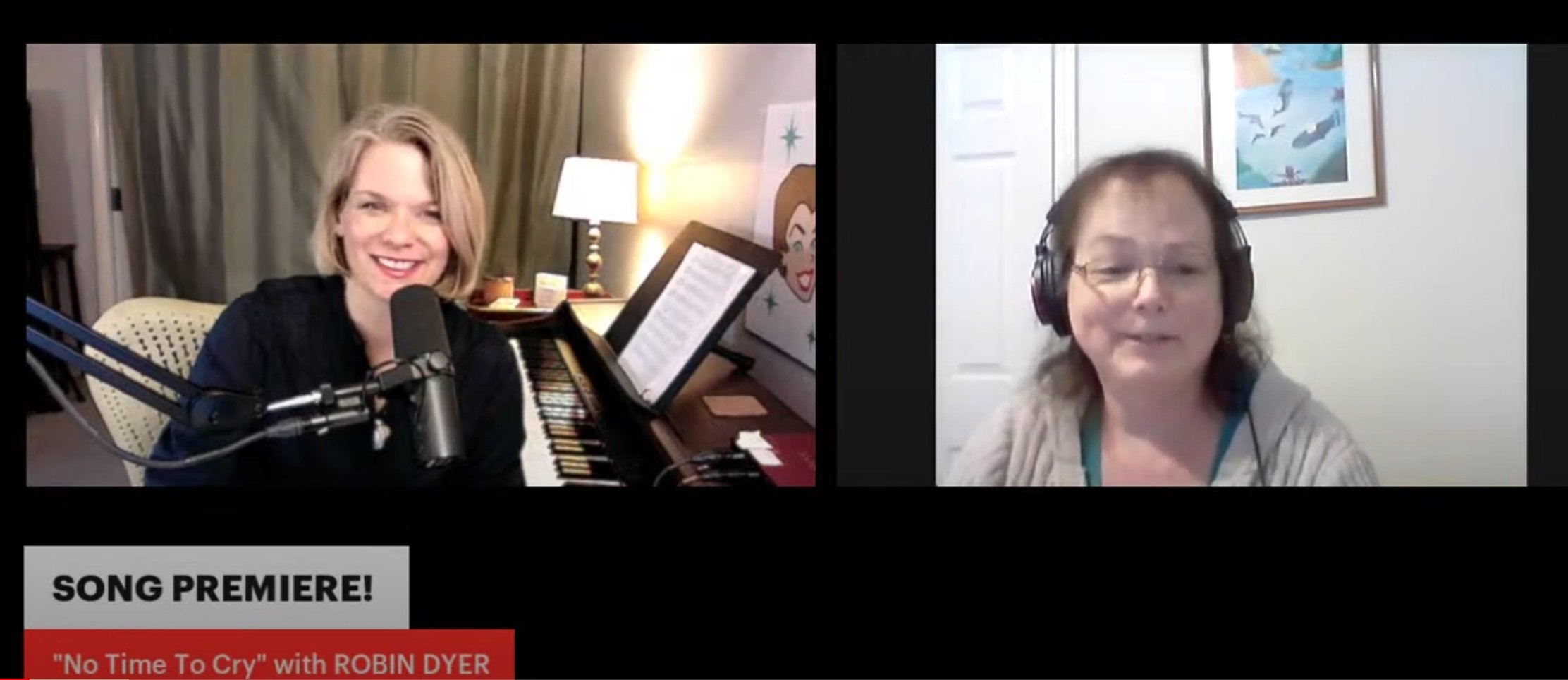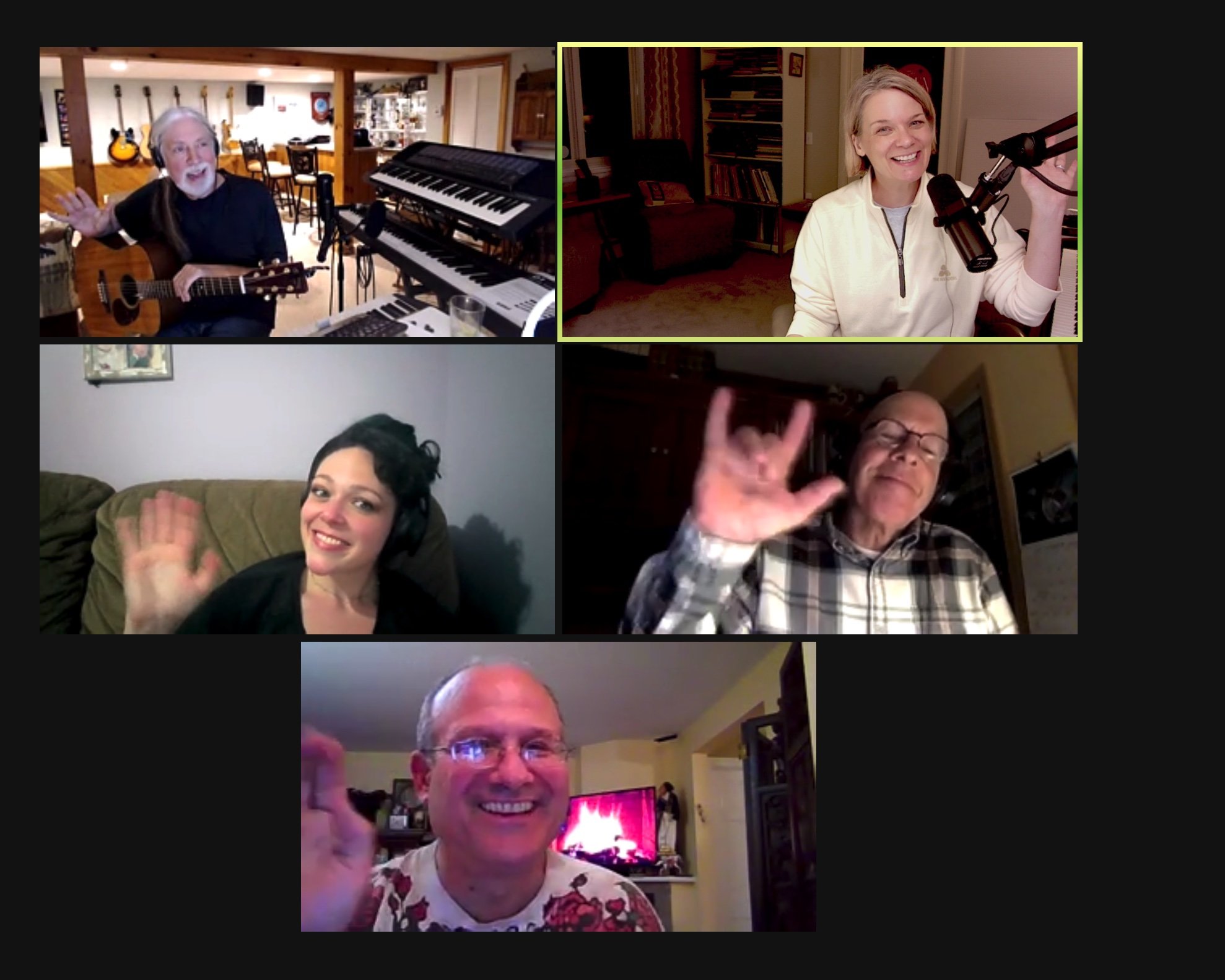 My latest contribution to cyberspace: A video of warmups for the singers of The Chorus Of Westerly. Director Andrew Howell asked me to record some warmups that singers could do every day at home (I'm the vocal coach for the Chorus). I suggested that a picture is worth a thousand arpeggios.
My latest contribution to cyberspace: A video of warmups for the singers of The Chorus Of Westerly. Director Andrew Howell asked me to record some warmups that singers could do every day at home (I'm the vocal coach for the Chorus). I suggested that a picture is worth a thousand arpeggios.
We tried to include a cross-section of exercises to suit the needs of the majority of our singers, who range in age from 8 to 80. So we stretched, we yawned, we made whale sounds, we wailed sirens, and we did some breathing exercises. You can do 'em too! Go ahead! 
At the Chorus, I've been able to hear about 20 or 30 of the individual singers over the past couple of years. Some have come for voice lessons or for voice class, or I've just been sitting near them in rehearsal. But most of the voices are known to me only as part of a group. I still have to figure out how to help them sing better. One-on-one vocal instruction can lead to rapid results because you can zone in on individual quirks and abilities. How do you improve the vocal technique of multiple singers at the same time? A choir director can demonstrate and then ask for an "oo" vowel, but every singer will take that direction a little differently. One chorister will sing "oo" with little change in the vocal tract, while the one right next door might sing an "oo" that sounds like an "oh," with some "uh," and "eeew" in there too. Each "oo" will be different because the person, like the voice, is unique, and the producer is too close to the sound to really hear what it sounds like. Each voice carries a lifetime of singing shoulds and shouldn'ts, unbroken bad habits, and (often) some overdone good habits. How do you get one person to brighten their "uh" to an "eeh" to wind up on "ooh" while the person right next to them needs to darken their nasal "eeew" with more "uh"? And then do that with, say, an additional 138 singers?
One of my solutions is asking everyone to make some extreme sounds, to increase flexibility and show a singer what's vocally possible in their own throat. Everyone, make "ee" so bright it needs sunglasses. Spread your lips, grin like a Cheshire Cat, and say "ee." Okay, that's bright! Feel the position of your tongue when you make that "ee." Now, make a dark, woofy "ugh" in the very back of the throat, like a monster on Halloween. Notice the difference. I mug, I grimace, I make very weird sounds and cheer every singer who's brave enough to do it with me. Most find it very freeing and fun. You're watching this on your computer? TRY IT!
Every singer should safely explore the limits of their instrument, individually or in a group. We get used to singing vowels in certain ways, we get used to hearing ourselves sing the same way, and we begin to lose flexibility. Sirens and wails and extreme sounds can help any singer find new colors and new vocal possibilities. Singers might also rethink where their voice is, in relation to those extremes. And they might be a little more willing to make small changes or adjustments.
Want me to come do whale sounds with your choir? Just ask!


















